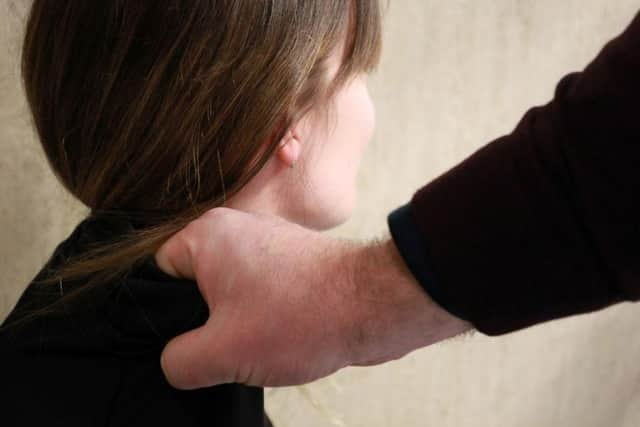‘We all have a role in protecting children’ - Lancashire Police chief reveals how officers keep youngsters safe
and live on Freeview channel 276
However, there is a tricky balance to strike between protecting a child and the risk of driving an offender underground - and potentially away from the watchful eye of the authorities.
Lancashire Police made 16 disclosures of information to protect children and adults in the county between April 2018 and March 2019, after 101 people made requests, figures have shown.
Advertisement
Hide AdAdvertisement
Hide AdFour were under Sarah’s Law - regarding someone convicted of a child sexual offence - and 12 were made due to other concerns, such as links to domestic abuse, drugs, which were felt to posed a risk to children.


Though the number of requests made to the force has remained stable, the number of disclosures almost halved since the previous year, when 35 disclosures were made as a result of 107 requests.
Of those, six were because the person had a child sexual offence on record, and 29 were due to other concerns.·
However, police say this in part could be due to officers using other processes to share information.
Advertisement
Hide AdAdvertisement
Hide AdEven before such laws came into force, the Constabulary already disclosed information about registered sexual offenders (RSOs) and violent offenders - albeit in a controlled way - to a variety of people, including head teachers, leisure centre managers, employers and landlords, as well as parents.


If the person has other information held about them relevant to safeguarding children – for example serial domestic abuse perpetrators, then disclosures may also be considered using existing processes and procedures.
Det Insp Jane Newton, of Lancashire’s Public Protection unit, explains: “The offender managers in divisions are very pro-active in Lancashire at managing sex offenders in the community.
“If they identify that someone is in a new relationship with children, or there are children that the offender is coming into contact with, they will investigate this and complete the disclosure.
Advertisement
Hide AdAdvertisement
Hide Ad“Protecting children is everyone’s responsibility and this is at the heart of the work completed by the offender managers.
“So often, there is no need for someone to do their own application because the offender manager has already completed the disclosure.
“We also get applications and, when researching them, find that this disclosure has already been completed by the offender manager.”
Sarah’s Law - officially known as the Child Sex Offender Disclosure Scheme - was introduced across England and Wales in 2010 following a long campaign by Dr Sara Payne MBE, after her eight-year-old daughter Sarah was murdered by a convicted paedophile.
Advertisement
Hide AdAdvertisement
Hide AdUnder Sarah’s Law, a disclosure can be made about an offender if they have convictions for sexual offences against children, and there is reasonable cause to believe a child is in danger of being seriously harmed.
However, some believe the current power does not do enough to protect children.
Details of previous sexual convictions will only be disclosed to the person who police decide is best placed to protect the child - usually a parent or guardian and not necessarily the person who applied for the information.
So, if a grandparent made an enquiry, the information might only be disclosed to the child’s parent - and that person is not allowed to divulge the information to anyone else.
Advertisement
Hide AdAdvertisement
Hide AdLancashire sexual abuse survivor Wayne Pilsworth feels this is a ‘flaw’ in the scheme.
Last month his abuser, Paul Anthony Timmis was jailed for 14 years after being found guilty of rape and assault charges at Preston Crown Court.
Evil Timmis gained such a hold of his victim that he persuaded him to live with him, so he could abuse him at will.
Today, Wayne says: “If grandparents are enquiring about a grandchild’s parent’s partner, the obvious answer would be to inform the grandparents as well, not just the parent.
Advertisement
Hide AdAdvertisement
Hide Ad“If the partner is a sex offender then he or she could be controlling their partner - or the child - therefore making it pointless just telling the partner.
“Sex offenders like to manipulate, or hide in plain sight - that’s part of the thrill, the control, in my opinion.
“Sarah’s Law and Clare’s Law are both flawed in that respect - I personally think that the whole family should be notified so that the right protection and help is available.
“To me, there’s no such thing as a rehabilitated paedophile or sex offender once a physical action has taken place.”
Advertisement
Hide AdAdvertisement
Hide AdBut Det Insp Newton says the legislation is designed to prevent the information being shared more
widely and potentially driving an offender going underground.
She adds: “In other countries where this is not as rigorously managed with legislation, the offenders are often forced to flee their homes for their own safety.
“As such the police and other agencies have missing sex offenders, who they cannot actively manage in the community.
Advertisement
Hide AdAdvertisement
Hide Ad“The legislation here provides the balance between actively managing the sex offender in the community and making disclosures to protect children at risk.”
Sarah’s Law background
Eight-year-old Sarah was abducted, sexually assaulted and murdered by convicted sex offender Roy Whiting in West Sussex in 2000.
Whiting had a history of child sex crimes, having previously abducted and sexually assaulted another eight year-old girl, for which he only served four years in jail.
Sarah’s mum Sara Payne has since become a victim’s champion, and campaigned for a scheme that allows parents or guardians to check if someone with regular, unsupervised access to their children - such as a new partner or a neighbour - has a history of child sex offences, if they have reasonable suspicions about them.
Advertisement
Hide AdAdvertisement
Hide AdIt resulted in Sarah’s Law being introduced in 2010. nationally, in its first year, 1,6000 enquiries were received and 160 disclosures made.
How are disclosures made?
When making a request police will ask:
• The name of the person requesting the information
• The name of the child
• The name of the person you are requesting information about
• Whether the person in question has unsupervised access to the child
• If you have any immediate/imminent concerns for the safety of the child
Advertisement
Hide AdAdvertisement
Hide AdIn one high-profile case over the border in Yorkshire, a mother-of-two was taken to court after using the scheme to discover she had a paedophile neighbour in 2017.
She was made to sign a Non-Disclosure Agreement, but subsequently outed him to neighbours.
She later voiced frustration at an apparent lack of support once she had been given the information, saying she was “ just left to deal” with this information.
But Det Insp Newton insists people who are successful in their application in Lancashire will be supported.
Advertisement
Hide AdAdvertisement
Hide AdShe says: “The disclosures are made by specialist officers who are the offender managers.
“All support required is assessed and often they will be accompanied by other agencies, such as social services.
“Referrals for support will be made if required and this is all shared also with partner agencies.
“As such there is support and advice for everyone whom a disclosure is made to.”